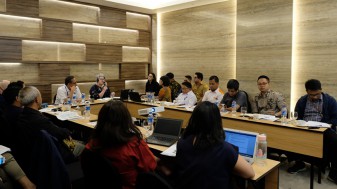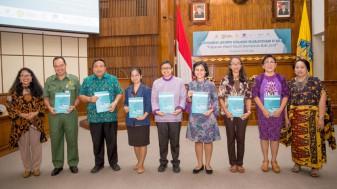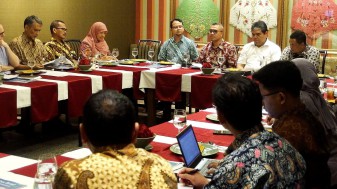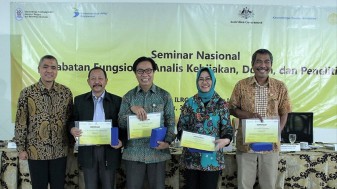Ethical clearance with the perspective of gender equality, disability, and social inclusion or GEDSI in research in Indonesia needs to be strengthened through institutions. The aim is to ensure that the integrity of the research carried out can be accounted for in accordance with existing scientific and ethical standards. In Indonesia, there are still a number of cases of ethical and research violations.
This was raised in the KSIxChange#38 webinar entitled “Internalizing the GEDSI Perspective and Institutionalizing the Clearance of Research Ethics” which was held on Tuesday (16/11/2021). This webinar resulting from a collaboration between Knowledge Sector Initiative and the Indonesian Academy of Young Scientists (ALMI). The speakers for the discussion were Dr. Evi Eliyanah, Lecturer of the English Department at the State University of Malang and Dr. Herlambang P Wiratman, Lecturer of the Faculty of Law, Gadjah Mada University. Meanwhile, the responders in this discussion were the Chair of the Ethics Clearance Commission for the Social Sciences and Humanities of the National Research and Innovation Agency (BRIN) Dr Augustina Situmorang; Associate Expert Policy Analyst at the Sub-directorate of Research and Community Service, Ministry of Religion Dr Suwendi; Director of the Center for Research and Advocacy for the Protection and Quality of Life of Children (Puskapa) University of Indonesia Santi Kusumaningrum; and Acting Director General of Research and Technology of the Ministry of Education, Culture, Research, and Higher Education Nizam. This discussion was moderated by Dr. Gumilang Sadewo, Lecturer of the Faculty of Economics and Business, Gadjah Mada University.
In her presentation, Evi Eliyanah said that provisions regarding ethical clearance have been governed in Law Number 11 of 2019 concerning the National System of Science and Technology. However, the implementation by instutions embedded at the level of universities and research institutions is still inadequate. Also, the technical guidelines of this law has not clearly specified the needs to strengthen such clearance institutions.
According to Evi, Indonesia needs a draft regulation that supports the institutionalization of ethical clearances and integration with a GEDSI perspective to enforce ethical clearances. Ethical clearance is important to ensure that research is carried out by individual researchers with integrity, and that the process also has integrity in accordance with existing scientific and ethical standards.
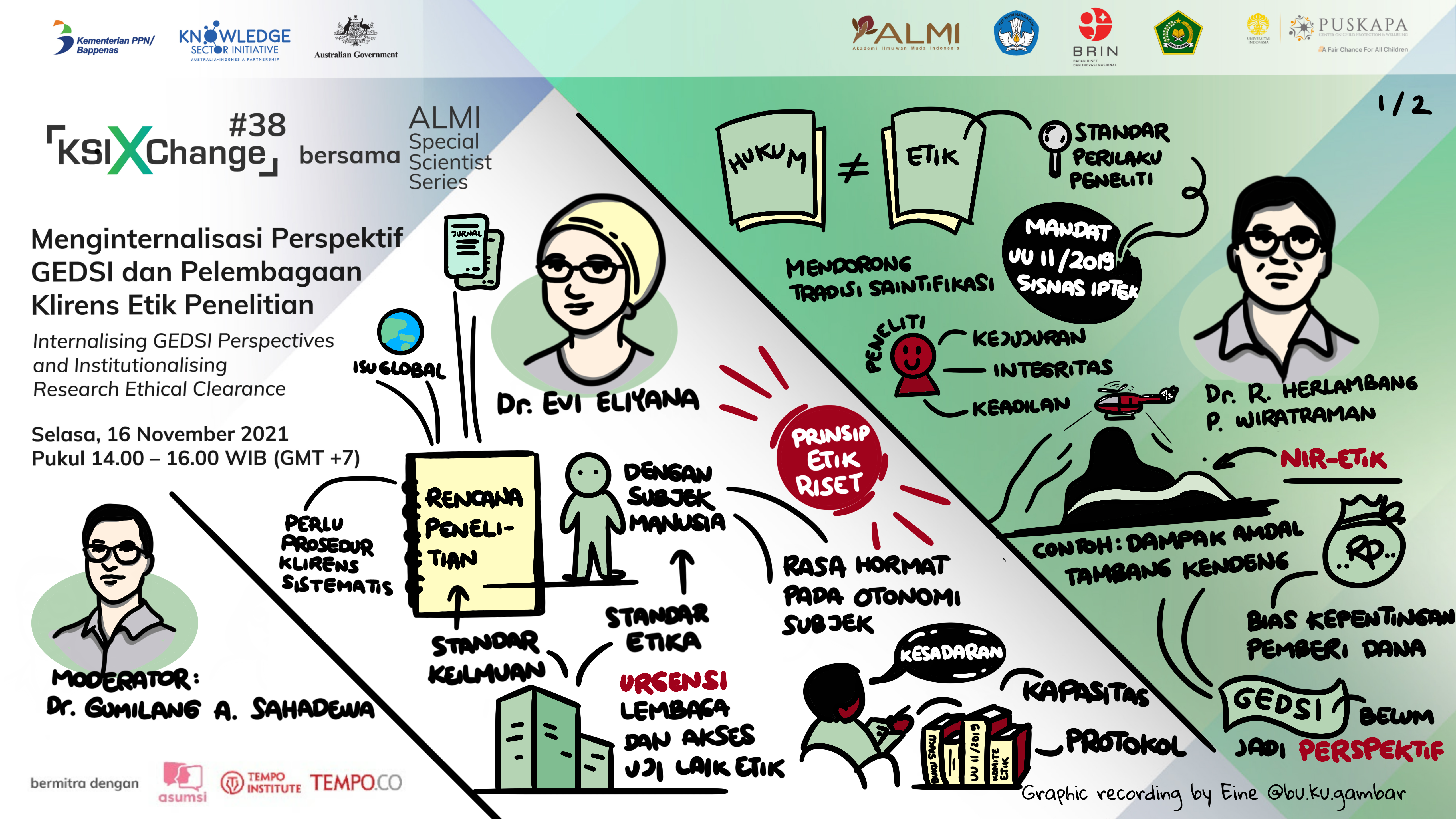
“The issue of ethics and integrity in research is a global issue with one of the indicators required by internationally reputed journals to make sure that all ethical standards have been fulfilled. The hope is that, when ethical clearance is institutionalized, this will boost the productivity of Indonesian research publications,” said Evi.
Evi added, based on her study, there are three major issues in the institutionalization of ethical clearance and the integration of the GEDSI perspective in research in Indonesia. First, there is a lack of understanding about the application of the importance of ethical principles in research and the integration of the GEDSI perspective in ethical clearance. Second, the implementing/technical guidelines on the institutionalization of ethical clearance and the integration of the GEDSI perspective are still inadequate. Third, there is a lack of ethical appraisal infrastructure in universities and research institutions.
“Therefore, it is necessary to mainstream ethical clearances with a GEDSI perspective in the formulation of research management policies. Hence, support and involvement of all stakeholders, such as the ministry that manages research funds, the Indonesian Chancellor's Council, or professional associations of researchers are key to develop such policies," said Evi.
The same opinion was conveyed by Herlambang P Wiratraman who also shared his views on this event. According to him, the challenge of institutionalizing ethical clearance with a GEDSI perspective in Indonesia is relatively big. GEDSI is often used in research, but its application is somewhat limited. The tradional approach to Research is often weak when applying high standards of ethics. Their importances are often neglected. Campus institutions are often permissive and they focus more on the urge to satisfy the accreditation process by publication in predatory journals.
"The fundamental ethical problem can be associated with the absence of tradition and strong support for the autonomy of academic institutions, thus impeding on the understanding that institutionalization of research ethics clearance is paramount to scientification," said Herlambang.
He also said that there are still many unethical research practices in Indonesia. Unfortunately, such practices seem to be covered up by the universities, to preserve their good reputation. Likewise, there is research that is biased by interests, especially by those of the funders.
"In the academic word, when a research is demanded by the government or corporation and backed up with a large amount of funds, researchers’ perspectives often affected by intention to please the funders, instead of to contribute to science," Herlambang criticized.
The struggles continue
Augustina Situmorang shared the experience of the clearing committee at the Indonesian Institute of Sciences (LIPI). She said that at LIPI there exists an Ethical Clearance Commission which was established in 2013. The commission is chaired by a deputy consisting of a number of researchers. In 2016, the role of this commission became even greater as researchers were mandated and they had to carry out the roles and functions of the Ethics Clearance Commission to members who were appointed as coordinators.
"Since 2019, all research funded by LIPI has been required to apply for ethical clearance, starting from the preparation of the proposal to the implementation of the research," said Agustina.
Meanwhile, at the Ministry of Religious Affairs, according to Suwendi, the institutionalization of ethical clearance still faces challenges. However, he confirmed that the integrity of the researcher and the results of the research is very important. The integrity of the researcher and the originality of the research are key to preserve good reputation of an institution.
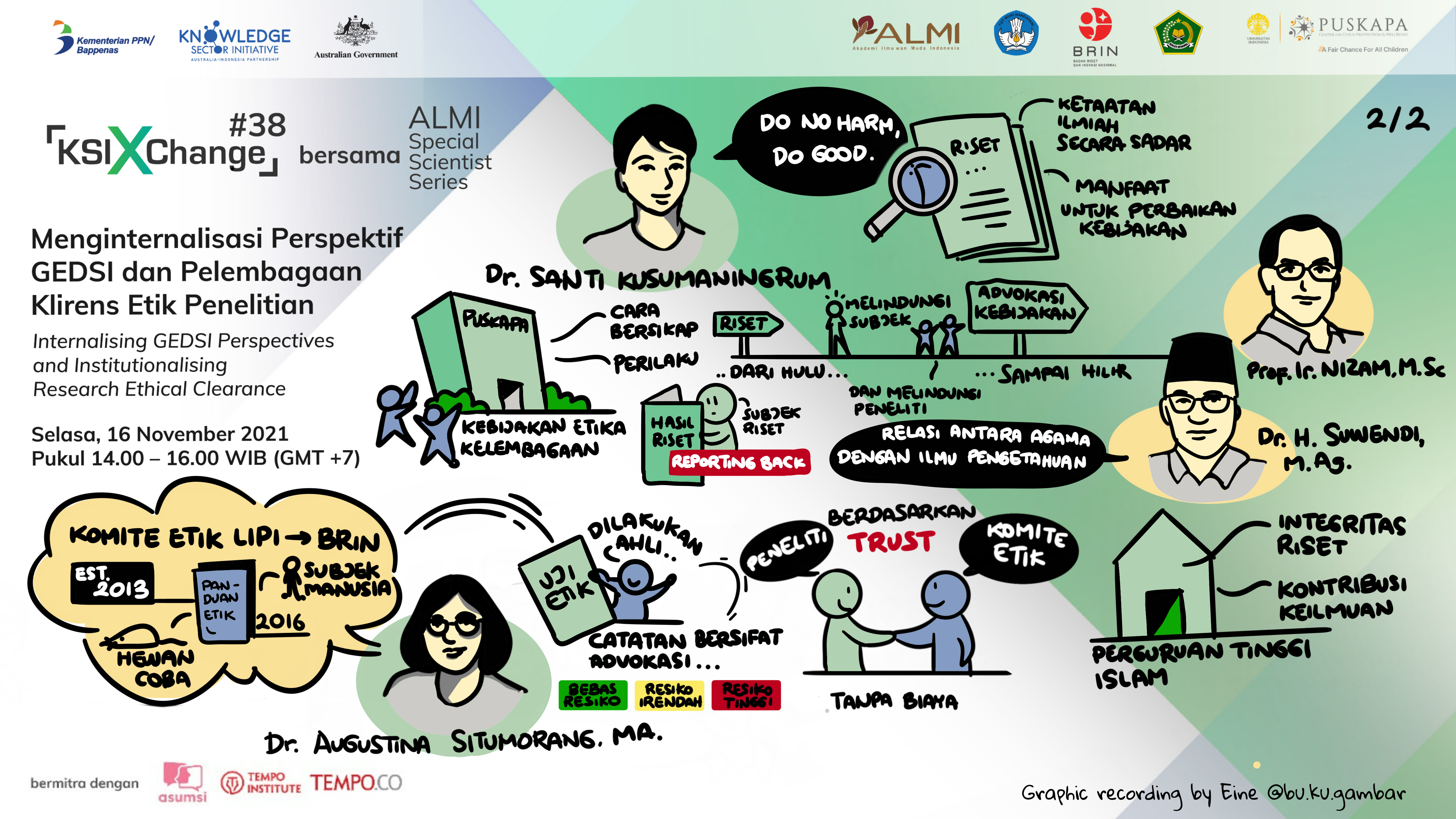
For Santi Kusumaningrum, the research ecosystem in Indonesia is still fragmented, especially regarding the issue of ethical clearance. According to her, ideally ethical clearance should be made prerequisite for all research in Indonesia. Especially for research that involves vulnerable groups as their subjects. For this type of research, it must be ensured that all ethical standards and other scientific criteria have to be validly complied with.
Nizam acknowledged that research with a GEDSI perspective in Indonesia is not yet properly conducted. Similar situation is also true for the compliance toward code of ethics. According to him, the government is open to all inputs and will take them into consideration in developing the code of ethics for research with a GEDSI perspective and the institutionalization of ethical clearance in Indonesia.
Although there has been considerable progress, policies related to the institutionalization of mainstreaming GEDSI related to ethical clearance still face some challenges. It is hoped that the policy recommendations proposed by ALMI can be an initial strategic step to support research development to become more inclusive.
KSIxChange is an interactive discussion initiated by the Knowledge Sector Initiative (KSI), a partnership between the governments of Indonesia and Australia with funding from the Australian Department of Foreign Affairs and Trade (DFAT). KSIxChange which is held at least once a month aims to support the implementation of government programs through increasing public discourse based on the use of evidence in the policy-making process. (*)

